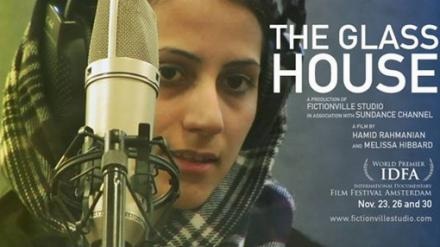
On Tuesday October 27th, 2009, I went to California Women’s conference, hosted by our first lady Maria Shriver. It was their sixth year and my second time to attend this female driven conference. Both times I very much enjoyed the energy of empowering women to be the “architects of change”. Thousands of attendees and speakers, men and women, from all walks of life and countries, gather to celebrate the emergence of a new era of practical equality between men and women. This new century brings with itself new hands to gently challenge the millennia old leadership practices and to mold the status quos into new shapes and forms. This all sounds splendid one may comment, words are glorious, but what about actually doing something to empower women?
Each year at the conference the Minerva Award, honoring the Roman goddess of wisdom, goes to four women who have done something extra ordinary in their communities around the globe. And each will get a gift of $25,000 as a small gesture from all the conference organizers, attendees and sponsors to support their organization.
The conference leaves you with a sense of responsibility, that as an advantaged woman, you are “noblesse oblige”. A French term meaning: ‘obligated to be noble’; to be good and to create something that leaves a legacy. Not a glamorous bourgeois kind of legacy, but a philanthropic set of actions that change lives and situations for better. And this novelty is not unique to women only.
The name of the conference is really just a name, what it really tries to communicate is to be balanced. The goal is not to put men down, but to bring women to the socio-political level of men. The goal is to shout that our world is out of balance and HELLO men and women, it’s time to really do something about it. And how about we start by creating a balance between the feminine and masculine energies in each family, community, company, and country. How about we start by giving some power to women, the most marginalized class of a society, and the treasure of each family. After all, mothers are the heart and soul of a family, and they foster what becomes a great person for the society.
On Wednesday October 28th, the day after the Women’s Conference, I went to see The Glass House (Fictionville, 2009), a feature documentary made by my friends and colleagues Hamid Rahmanian and Melissa Hibbard. This amazing movie reveals what goes on at Omid-e-Mehr center in Tehran, Iran. Founded by Marjaneh Halati, Omid-e-Mehr, or “Hope for Kindness”, is a non-profit organization helping disadvantaged young women of Iran to get back on their feet and learn the right skills to independently function in the society.
As painful as it may sound, this movie was not about the pain these young women go through, although the story evolves around their problems and challenges. What is really unique about the filmmakers’ choice of storytelling is to show the girls’ passion to just live and find hope when it seems to be the least possible thing to do. Facing daily humiliation, domestic violence, and physiological trauma, these brave young girls would always find a way to laugh, and make fun of themselves, their parents, and even their teachers.
Moreover, the difference between Omid-e-Mehr and other NGOs that I know of in Iran or in developing societies for that matter, is a sense of non-judgmental attitude the staff and social workers have towards these girls. No matter what they have done and been through, they are not condemned for their actions and are not led to better behavior through religious practices and rituals. I think any educated person knows that religion is created by men and for men, and it doesn’t quite work when it comes to saving women from hostility created by mostly men.
Omid’s girls are mainly treated through western psychiatry and psychotherapy practices but the therapists and social workers have a deep understanding and knowledge of Islamic laws, taboos, and customs. Therefore, a girl in need is treated by western scientific methods and eastern sentiments, with hopes of getting the maximum result. The Glass House clearly shows that this center has created a safe haven for these young girls to find peace and laughter and simply be themselves without fear of judgment, humiliation and punishment.
What stood out to me besides the non-judgmental attitude was the fact that two of the girls claimed to be in such dire strait situation because of their mothers. Their mothers sold them into prostitution and forced them to drug trafficking before they hit puberty. Or they blamed their mothers for not being there for them when their brothers and uncles raped and abused them. Remembering one of the speakers at the women’s conference, Somaly Mam, a Cambodian sex slave survivor who started her organization to save female sex slaves in Cambodia, it was yet again confirmed to me that women suffer because women allow each other to suffer. It was yet again proven to me that suffering ends when you and I decide to end it – by saving one person at a time.
We are obligated to recognize our strength and to be noble. If we do not rise as Hamid, Melissa, Marjaneh, Maria Shriver and Somaly Mam did, we will never reach our tipping point. It is not about women rising but men and women rising for justice and harmony. It doesn’t matter how we rise, but we must rise in any way we can.
To learn more about Califnornia Women’s Conference ,The Glass House, and Omid-e-Mehr, and Somaly Mam Foundation please go to their links, and find a way to support their cause.
AUTHOR
Bita Shafipour is a filmmaker and founder of Society of Cinema and Arts www.sociarts.com, a socially conscious platform for artists worldwide.






